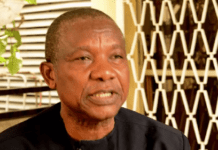In view of the unending strike actions in the health sector, the Association of Community Pharmacists of Nigeria (ACPN) has urged members of the public not to resort to self-medication and arbitrary consumption of local herbs.

Speaking exclusively with Pharmanews, ACPN chairman, Pharm. (Alhaji) Ismail Adebayo, explained that the association was fully aware of the sufferings experienced by patients and their loved ones during industrial actions such as the recently suspended strikes by the Joint Health Sector Union (JOHESU) and the Nigerian Medical Association (NMA).
“Whenever we have issues like this, you discover that patients will always seek alternatives. Some are forced to visit hospitals and that can be very expensive. Secondly, the quality of the service, especially when it comes to pharmaceutical care, will be poor”, Adebayo said.
“Besides we know that most private hospitals don’t even have pharmacists. And by virtue of that, it is going to affect the quality of health care delivery that will be given to the citizens,” he added.
The ACPN chairman however noted that the most worrisome fallout of health workers’ strikes is the number of people who resort to self-medication, which could be dangerous for them.
“As the national chairman of ACPN, what we preach when we see patients is proper enlightenment and education on what to do. But how many of them can afford even the consultation fees that private hospitals charge? Consequently, they may resort to self-medication. What can we do? One thing is for pharmacists to give advice, another thing is for people to take to it,” he remarked.
According to Adebayo, self-medication is not limited to those who use local herbs, but also those using cheap and substandard medicines because they cannot afford to visit private hospitals or pharmacies during strikes.
“Of course, we know how much it takes to treat ordinary malaria in this country. By virtue of this, I will implore the government to look at this matter holistically,” Adebayo urged.
It would be recalled that the Nigerian Medical Association (NMA), after several dialogues with the federal government, was compelled to call off its 55 days strike on 25 August, 2014. According to a communiqué released to announce the Call-off, the decision was based on current challenges in the country.
Similarly, the Joint Health Sector Union (JOHESU), embarked on strike on 12 November, 2014 over non-implementation of the agreement entered into by the government, which bordered mainly on issues of improved welfare for health workers. The strike was eventually suspended on 2 February 2015. This was sequel to a meeting between President Goodluck Jonathan and JOHESU during which salient issues regarding the grievances of the union were discussed.













